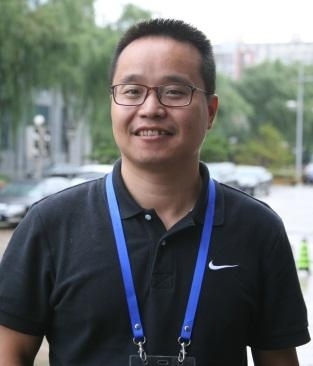 The Division for Planetary Sciences (DPS) of the American Astronomical Society has just announced that Dr. Yong-Chun Zheng is the recipient of the 2016 Carl Sagan Medal for outstanding public communication. The award ceremony is going to be held at the joint DPS/EPSC (European Planetary Science Congress) meeting in Pasadena, California this October.
The Division for Planetary Sciences (DPS) of the American Astronomical Society has just announced that Dr. Yong-Chun Zheng is the recipient of the 2016 Carl Sagan Medal for outstanding public communication. The award ceremony is going to be held at the joint DPS/EPSC (European Planetary Science Congress) meeting in Pasadena, California this October.
The Carl Sagan Medal for Excellence in Public Communication honors an active planetary scientist for his/her outstanding contribution to science communication to the public. DPS cited Dr. Zheng for his tireless promotion of planetary sciences to the Chinese public and for his explanation of Chinese science to the western world. Not only has Dr. Zheng made a large number of presentations at planetariums and science museums, he has also written hundreds of articles on planetary science and astronomy topics in newspapers such as People’s Daily, China Science and Technology Daily, and Newton Science World, which reach millions of readers. Dr. Zheng updates scientific discoveries and information several times a day in public science websites. His blog at http://www.sciencenet.cn has been visited over 340,000 times.
Dr. Zheng is an Associate Researcher at the National Astronomical Observatory of the Chinese Academy of Sciences (CAS). He has been recruited as a “Distinguished Guest Associate Professor” by the Macau University of Science and Technology (MUST) since January 2013. He is one of the founding members of the Lunar and Planetary Science Laboratory (LPSL) of MUST -- Partner Laboratory of the Lunar and Deep Space Exploration Key Laboratory of CAS. Dr. Zheng’s research mainly focuses on lunar and planetary geology. He had collaborated with colleagues of MUST in analyzing data obtained by Chang'E-1 and 2 and constructed the world’s first global lunar microwave map. The map showed, for the first time, the presence of thermally anomalous regions on the moon; the result has raised considerable attention in the planetary science community. Currently, with the support of the Macao Science and Technology Development Fund, Dr. Zheng is collaborating with members of LPSL to study the properties of lunar dust. The problem is of great importance to future human stay on the moon.
High quality research and transfer of scientific know-hows have always been MUST’s high priority undertakings. In November 2014, LPSL of MUST was established. It is the first partner of a CAS key laboratory established outside Mainland, and represents that MUST has created a close tie with the space exploration program of China. This also signifies a new and important role of Macau in the overall picture of the country’s strategic development. In addition to the carrying out of planetary research, science communication to the public is among the key objectives of LPSL. By making the laboratory resources openly available, providing research ideas and technical support, MUST has been working with local middle and high schools in setting up a platform for school students to conduct science exploration and popular science activities. The program, recently renamed the Golden Seed Project, is being seek after by top-ranked high schools of Macau.
Prof. Carl Sagan spent most of his career as a professor at Cornell University. He published more than 600 scientific papers and articles, and was the author, co-author or editor of more than 20 books. He was the editor of the mainstream planetary research journal Icarus for 12 years. He pioneered the exobiology field and was one of the founders of the Search for Extra-Terrestrial Intelligence (SETI) project. Prof. Sagan enjoyed high reputation all over the world for being the author of many popular science books and co-wrote, as well as narrated, the award-winning 1980 television series Cosmos.






